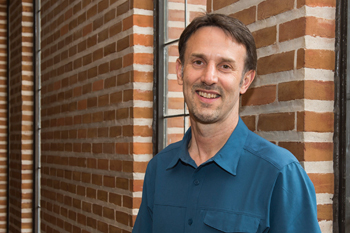Rice University’s Department of Psychology will use mobile sensing technologies to help people who are trying to stop smoking from having a relapse as a member of the National Institutes of Health’s new Center of Excellence for Mobile Sensor Data to Knowledge (MD2K).
Created with $10.8 million in federal grants, the center is part of the NIH Big Data to Knowledge (BD2K) initiative designed to support advances in research, policy and training needed to use biomedical data sets – often referred to as “big data” – in biomedical research.
Rice is one of 11 U.S. universities involved with the MD2K Center, which will be led by University of Memphis computer scientist Santosh Kumar. The center will target two complex health conditions with high mortality risk – reducing hospital readmission in congestive heart failure patients and preventing relapse in abstinent smokers. The goal is to accelerate progress toward the vision of predictive, preventive, personalized, participatory and precision (P5) medicine by producing and making widely available open-source, extensible and standards-compliant big-data analytics software for extracting information and actionable knowledge from mobile sensor data.
“Mobile sensors offer tremendous opportunities for accelerating biomedical discovery and optimizing care delivery,” Kumar said. “By resolving significant technological and scientific challenges related to the complexities of mobile sensor data, our team aims to lay the scientific foundations for realizing the vision of P5 medicine with mobile sensors, and usher in the next generation of health care.”
David Wetter, chair of Rice’s Department of Psychology and Cho Lam, who will join Rice as a senior faculty fellow in psychology Jan. 1, will collaborate with the MD2K team in the design, conduct and evaluation of the smoking-cessation users studies.
“The goals of our studies are to apply mobile sensing technologies to detect – automatically and unobtrusively – both smoking lapses and their behavioral, social, physiological and environmental triggers,” Lam said.
The researchers will also examine the use of just-in-time adaptive interventions to pre-emptively stop abstaining smokers from lapsing. Specifically, Wetter and Lam will work with MD2K’s Data Science Research Team to use wearable sensors to identify markers of smoking lapse, to evaluate the accuracy of these markers, to develop models for detecting and predicting imminent smoking lapses and to field test the feasibility of delivering just-in-time adaptive interventions.
“We are incredibly excited to be a part of this center,” Wetter said. “Our role is to help utilize the data from these bleeding edge human sensing technologies to predict risk for smoking relapse and translate these prediction algorithms into specific intervention strategies.”
Wetter envisions that he and Lam will be able to utilize the big data generated via mobile sensing to both further the basic understanding of addiction processes and mechanisms, and create innovative real time, real world, adaptive interventions to improve treatment outcomes.
The approach and product of MD2K are expected to be applicable to other complex diseases as well, such as asthma, substance abuse and obesity. The center will make the MD2K tools, software and training materials widely available and will organize workshops and seminars to encourage their use by researchers and clinicians.
In addition to the University of Memphis and Rice, the MD2K team includes leading scientists from Cornell Tech, Georgia Tech, Northwestern, Ohio State, UCLA, UC San Diego, UC San Francisco, the University of Massachusetts Amherst, the University of Michigan and nonprofit organization Open mHealth.
Each of the National Centers of Excellence represents a multi-investigator, interdisciplinary team working to develop innovative approaches to address a major challenge to the effective use of big data. The NIH’s ultimate goal is to form a national infrastructure to develop and deploy cutting-edge approaches, methods, software, tools and other resources that will enable biomedical researchers to use big data to advance human health.
“Data creation in today’s research is exponentially more rapid than anything we anticipated even a decade ago,” said NIH Director Francis Collins. “Mammoth data sets are emerging at an accelerated pace in today’s biomedical research and these funds will help us overcome the obstacles to maximizing their utility. The potential of these data, when used effectively, is quite astounding.”
For more information, visit md2k.org.



Leave a Reply